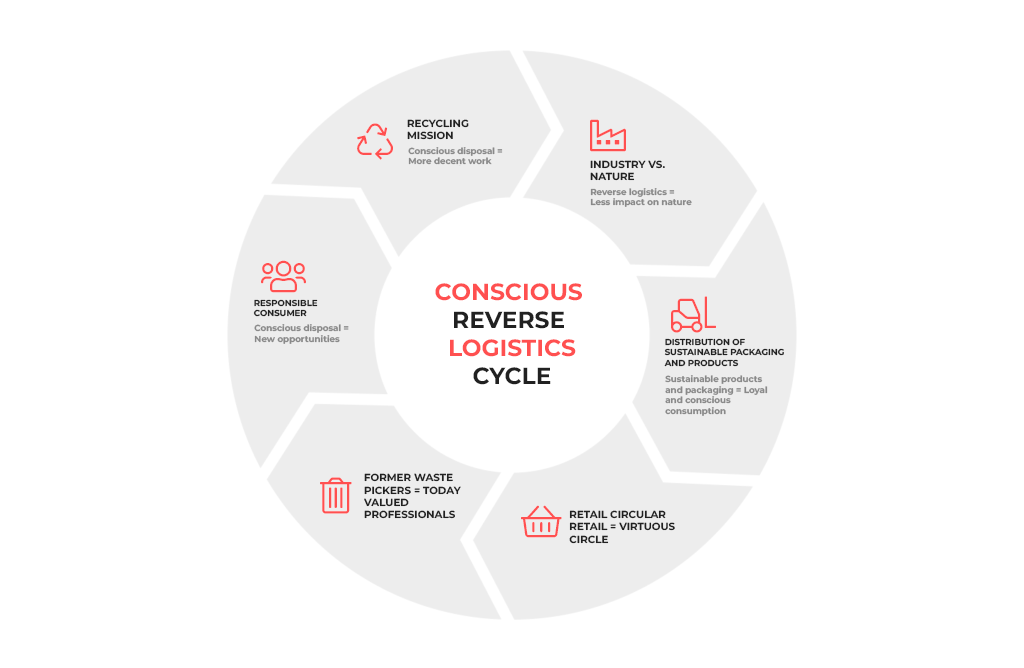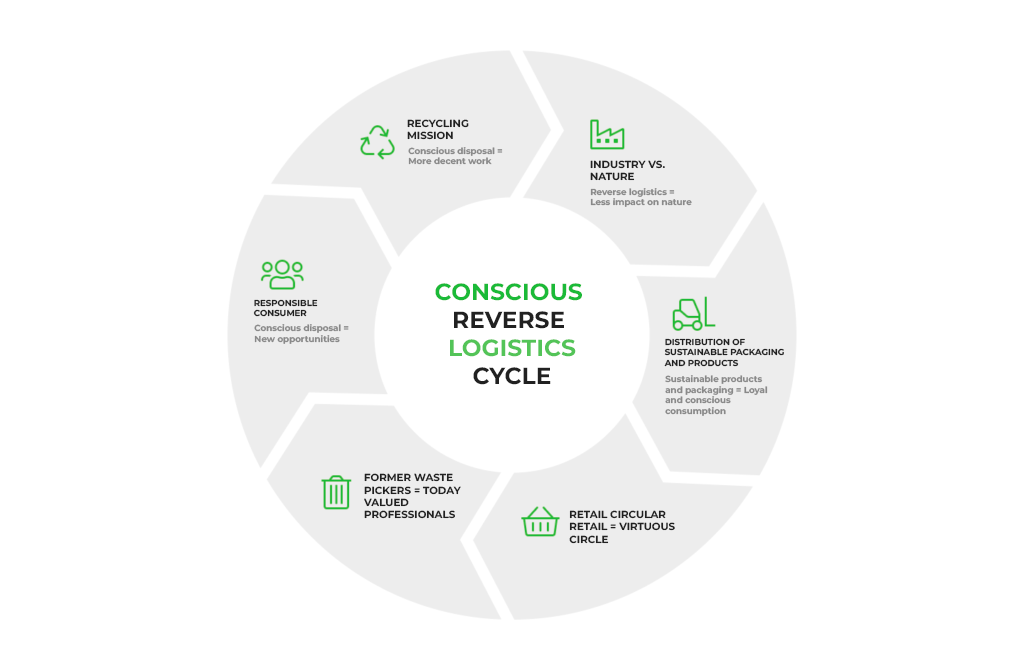The circular economy is a concept based on the intelligence of nature and is opposed to the production process of a linear economy, whereby waste becomes a resource for producing new products.
It is science that re-evaluates long-term economic practices, outstripping the five famous R's - rethink, refuse, reduce, reuse and recycle. In the environment, fruit scraps consumed by animals will decompose and become fertilizer for plants. However, the impact of human beings on the environment is increasingly hindering the balance of the ecosystem as a whole. Scholars point out that the circular economy can be a solution to minimise this human impact on the ecosystem. Conscious consumption and the circular economy go hand in hand.
This concept is also called cradle to cradle and is based on the idea that there is no such thing as waste. Everything is continually serving as a nutrient for a new cycle. Transferring this concept to the product industry, the production chain could be reassessed so that, for example, parts of used household appliances could be reprocessed and reintegrated into the production chain as components or materials for the manufacture of other electronic products. In this case, in addition to having your business aligned with environmental laws on reverse logistics and avoiding fines from regulatory bodies, your company would be reducing the costs of manufacturing and importing these products.
Currently, our productivity systems still work in a linear way, which are not sustainable since they favour the predatory exploitation of natural resources and cause a huge accumulation of waste. In this model, we exploit raw materials, produce goods and then discard them. This is known as built-in obsolescence, a strategy that consists of producing items which have already reached the end of their usefulness, generating waste that is never recycled and which accumulates exponentially. Compared to other countries in Latin America, Brazil is the champion in waste generation, producing about 541,000 tons per day, according to data from the United Nations. In view of this reality, and in order to combat it, the Truman Stakeholders has changed the perception of the value of waste to prioritise products from the circular economy.
Compared to other countries in Latin America, Brazil is the champion in waste generation, producing around 541,000 tons per day, according to data from the United Nations.
Ciclo da Logística Reversa Atualmente X Ciclo da Logística Reversa Consciente
CICLO DA LOGÍSTICA REVERSA ATUALMENTE x CICLO DA LOGÍSTICA REVERSA CONSCIENTE

THE IRRESPONSIBLE CONSUMER: Consumes products, treats packaging as rubbish and discards it wherever. This kind of action contributes to the existence of landfills.
RECYCLING CHALLENGES: Due to the lack of public awareness about the importance of recycling, industries still have few packaging options arising from reverse logistics. As a result, new products use packaging that requires the extraction of raw materials from nature.
INDUSTRY vs NATURE: Due to the lack of public awareness about the importance of recycling, industries still have few packaging options arising from reverse logistics. As a result, new products use packaging that requires the extraction of raw materials from nature.
Distribution of negative impacts products: Production processes that generate an ever more negative impact on nature are sending new packaging onto the market that end up on business premises.
RETAIL: Production processes that generate an ever more negative impact on nature are sending new packaging onto the market that end up on business premises.
WASTE COLLECTORS = AN INHUMAN WAY OF COLLECTION: Waste collectors often work in precarious working conditions, due to the fact that they are not collecting waste, but trying to find waste in an environment that has been interpreted and treated as waste by human beings.
THE MORE WASTE THERE IS, THE MORE HUMAN EXPLOITATION

THE RESPONSIBLE CONSUMER: Consumes products, sees their packaging as having “purpose value and economic value" and disposes of them at appropriate collection points. At the same time, this kind of action contributes to the economic growth of waste collection companies and increasingly efficient cooperatives.
RECYCLING MISSION: An eco-conscious waste disposal system for the general public will result in waste collection companies and cooperatives being better able to generate business opportunities and fairer employment.
INDUSTRY vs NATURE: With the greater awareness that the general public have about the importance of recycling and eco-conscious waste disposal, industries are starting to connect more and more with cooperatives, and have access to greater reverse logistics solutions.
DISTRIBUTION OF PACKAGING AND SUSTAINABLE PRODUCTS: Production processes that favour the mitigation of negative impacts on nature can position more sustainable products and packaging on the market, which in turn will end up on business premises and be more relatable to an increasingly more demanding public.
RETAIL: Production chains that care about nature and raise awareness among their consumers will be the first to identify consumer behavior and new business opportunities, building customer loyalty and brand reputation.
FORMER WASTE COLLECTORS = NOWADAYS VALUED PROFESSIONALS: Former waste collectors, who often worked in precarious conditions will now be qualified, registered professionals and spectators to the transformation of waste into opportunities and new, more sustainable production chains.



